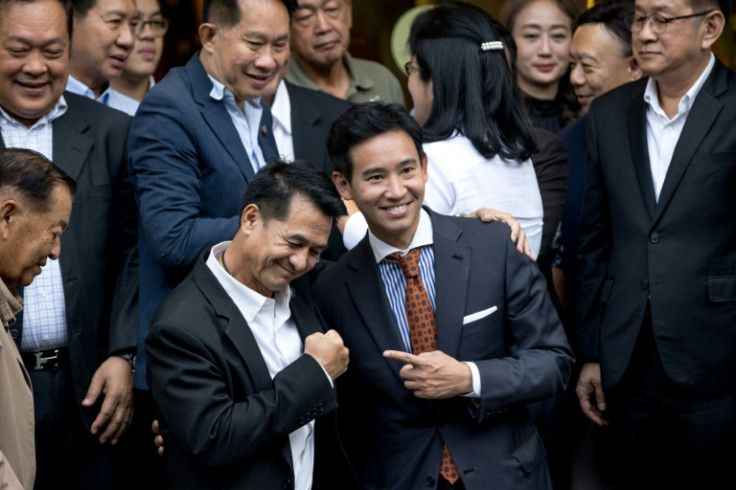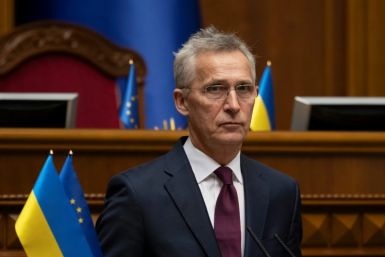Thai Parties Meet For Coalition Talks To Form Government

Thai opposition groups met for coalition talks Wednesday after hammering government rivals at the ballot box, but some junta-appointed senators warned they would try to stop the victorious party's leader from becoming prime minister.
The progressive Move Forward Party (MFP) emerged from Sunday's election as the biggest party after voters emphatically rejected nearly a decade of military-backed rule.
MFP leader Pita Limjaroenrat met senior officials from five other opposition parties at a Bangkok restaurant, posing for photos before ushering them inside for closed-door talks.
Pita, 42, is trying to build an alliance with Pheu Thai -- the party that has dominated Thai politics for two decades -- and four smaller groups.
MFP claimed 152 seats, with Pheu Thai second on 141. Allying with the other parties would give them more than 300 of the 500 lower house seats.
But to secure the prime minister's job the coalition needs a majority across both houses -- including the Senate, whose 250 members were handpicked by the previous junta.
MFP and its allies need 376 lower house votes to ensure senators could not block Pita from becoming prime minister.
Some senators have already voiced opposition to him, rattled by his strong anti-establishment stance including plans to amend the kingdom's tough royal insult laws.
"I will not accept Pita as a PM," Senator Jadet Inswang said, raising concerns about lese-majeste reform.
Senator Kittisak Ratanawaraha also declined to support Pita.
"The PM candidate needs to love the nation, monarchy," he said.
A senior Pheu Thai leader on Tuesday called on two mid-size conservative parties -- Bhumjaithai and the Democrats -- to help the coalition in the vote for prime minister.
The Bhumjaithai party, which was part of the outgoing coalition of Prime Minister Prayut Chan-O-Cha, is shaping up as a potential kingmaker with its 70 lower house seats.
Military-linked parties could in theory try to form a minority government, relying on Senate support to get their choice of prime minister through but, with few lower house seats, it would find it difficult to govern.
Regional observers from the Asian Network for Free Elections (ANFREL) said Thailand should have a government that "reflects the will of the people".
ANFREL saluted the strong voter turnout of just over 75 percent and said the poll was more transparent than the previous one in 2019.
It deployed 41 regional observers, who visited 460 polling stations in 51 provinces on election day, and said voting was "peaceful and orderly".
The mission said vote-buying was the most reported concern, although it did not give the number of cases involved.
© Copyright AFP 2024. All rights reserved.











